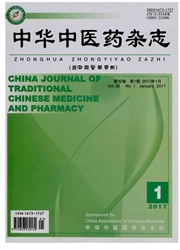

 中文摘要:
中文摘要:
绝经后骨质疏松症是因雌激素水平下降引起骨免疫功能增强,导致骨偶联失衡,破骨细胞的骨吸收超过成骨细胞的骨形成,引发体内的正熵增加,从而影响机体的有序态。肾阳虚证是绝经后骨质疏松症常见证型之一,人体是一个非平衡的开放系统,也是一个高级的耗散结构,在不断与内外环境进行物质、能量等各种信息交换时,用负熵克服体内的正熵,维持机体的有序态。因此文章基于肾虚骨痿理论,以熵变理论为切入点,探讨肾阳虚证素变化与熵变的内在关系,为肾阳虚证的机制研究提供新思路。
 英文摘要:
英文摘要:
Postmenopausal osteoporosis leads to increase the positive entropy of body and then affects the body's orderly state, because estrogen withdrawal enhances the function of bone immune. It also would cause bone coupling imbalances and bone resorption of osteoclast surmounting bone formation of osteoblast. The kidney-yang deficiency syndrome is a common syndrome of postmenopausal osteoporosis. Human body, a non-equilibrium open system and an advanced dissipation structure, is maintained the orderly state and continuous exchange of material, energy and all kinds of information between internal and external environment by negative entropy, which would overcomes the internal positive entropy. Therefore, based on the Guwei due to kidney deficiency and entropy theory, we explore the internal relation of the kidney deficiency syndrome element and entropy to provide fundamental knowledge for the mechanism of the kidney-yang deficiency formation.
 同期刊论文项目
同期刊论文项目
 同项目期刊论文
同项目期刊论文
 Tongue coating microbiome regulates the changes in tongue texture and coating in patients with post-
Tongue coating microbiome regulates the changes in tongue texture and coating in patients with post- 期刊信息
期刊信息
